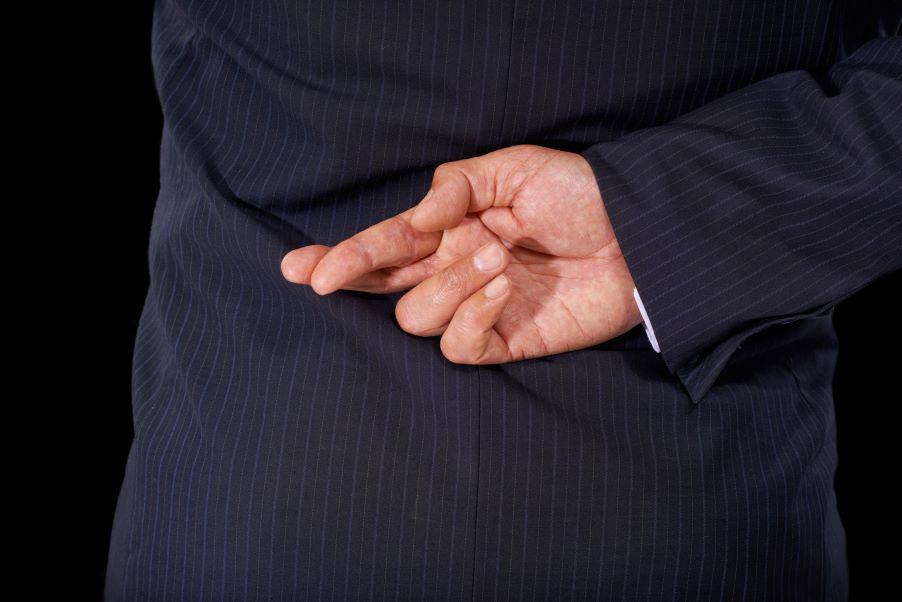A week ago, while working on some new projects, I happened to search for one of my videos online, my TEDx talk. Over the last couple of weeks, for some unknown reason, it has taken off and has over 325,000 views. This is almost three times the amount of views it had since it was posted in November up until the middle of June. Now, I’m extremely curious about how people reacted to the video. It is by far the most personal I have been in front of the camera. It was my biggest risk and with big risks come polarised perspectives.
On YouTube, there is an opportunity for viewers to thumbs up or down a video. There were over 7000 thumbs up and more than 370 thumbs down. There is also a place to comment. There were hundreds of comments. So I began to read all of them. It wasn’t easy. Many were inspiring and lovely. Yet, I found myself drawn towards reading the nasty comments. The trolls were in force. Sensitive as I am, I expected that this would hurt me massively. Instead, I realised that I was the one who had actively hurt myself far more than these trolls and haters.
Handling haters and trolls, online and offline, requires an entirely different way of thinking. So many people fight such negativity by ignoring it or attacking back. So many others find themselves running away and avoiding such situations. I’ve done all three. In many ways, it was my actions over the past few years that caused me to do this. My fear of what they might say became the prison in which I trapped myself. Weirdly, it is only since reading some horrible things about myself online that I feel extremely liberated and more free than ever. I have learned that there’s nothing to be scared of. This insight came to me not by arguing or ignoring but in thinking more about the comments and the trolls and the whole meaning of trolling.
I am sensitive. Perhaps too much. In relationships it has caused issues. Outside of relationships however, it has also been problematic. I get hurt easily. I take things personally too easily. See, inside my head, the dark voice – the inner hater is an absolute bastard. He roasts me and picks at me worse than any hater or troll could. Worst of all, he does his best to convince me that others think the same. All along I fought this voice, trying to convince myself that this wasn’t true. Little did I know, that it may be true but that wasn’t important. What was important is, if it was true, why it was true? What was important was understanding that hate, criticism and trolling were a part of life that was inevitable and I had to get used to that.
When I was in school I was bullied. Not so much physically although that did happen. I experienced knives held to my throat on occasion and was choked by older kids. What really hurt me though were the insults and isolation. In a mixed school, the combination of being positioned as a ‘reject’ or ‘loser’ by both girls and guys was horrifying for me. I wanted so badly to be popular. Yet I was mocked and laughed at. I had ‘friends’ who I found out would comment about me behind my back. I was humiliated in front of girls I fancied. I was stuck in a persona that I didn’t like and felt helpless to change.
One Valentine’s Day, I was sent a valentine’s card. It was the first card I ever received. It was apparently signed by one of the girls who was also bullied in school. She wasn’t popular and instead of being glad, I felt even worse. This was the ‘category’ I was in. In hindsight, that was how stupid my mindset was. I somehow had a rating scale for everyone and I desperately wanted to be a 7,8 or 9 but this only served to convince me I was a 1 or 2 just like this girl. The kicker was that she never sent the card. It was sent by two of my ‘friends’ in the class. They thought it was hilarious and the whole class laughed at me. I was insanely hurt by this.
Being sensitive, I never was able to attack others that well. Even to this day, I rarely, if ever, go below the belt in an argument with someone. I would never tease someone overweight about being fat. I would never insult someone who was small for being small. It’s not my style. It’s not in me to do that.
When I decided to do a TEDx talk, I had plenty of ideas that I wanted to communicate. I felt this was a good opportunity to reach out to a big audience. At the same time, I felt that I needed a fresh approach to deliver the message. My TEDx talk is about the battle for the control of your mind by the two primary voices. There is the good voice and the hater. In the speech, which was all rhymed, there were three rap battles between the voices. Now, obviously, I am not a rapper and am not skilled as a rapper. I never claimed to be. But I believed it was an effective way of getting a lot of attention to an idea I hoped would make a powerful difference to many people. At the same time, I knew it set me up to also attract a massive amount of haters and trolls. The decision to go ahead with it opened me up to a large potential for negative comments on an online channel I had no control over.
Reading troll after troll was tough. Despite liking myself and being comfortable with who I am; the hating gets to me. I read comment after comment. ‘Cringe’ ‘Embarrassing’ ‘Looks like Vincent Van Gogh’ ‘White guy rapping. Please don’t’ ‘Pathetic’. Here’s what I didn’t expect. It didn’t bother me nearly as much as I expected. In fact, the more I thought about it, the better I felt. It was strange.
Trolls can be defined as ‘a mythical, cave-dwelling being depicted in folklore as either a giant or a dwarf, typically having a very ugly appearance.’ They can also be defined as ‘a person who makes a deliberately offensive or provocative online post’ or even ‘a line or bait used in trolling for fish’. The modern day understanding of the word is almost certainly the second one. The etymology of this definition probably is somewhat connected to third definition. Indeed, trolls do tend to use their comments as a form of bait.
Since the dawn of the world wide web, people have found a way to invent themselves an online persona. They can hide behind a keyboard and say whatever they want about whoever they want to whoever they want whenever they want. Haters that aren’t online tend to hide their hate by concealing it face to face. They usually attack you to others through gossip or badmouthing or they do it to you through thinly veiled condescension, sarcasm or the art of ‘sniping’.
Few people actually are as brutal and direct face to face as they are online. Ultimately speaking however, to handle haters and trolls, the same thing is necessary. You must learn to adjust how you think and what you think. When I got bullied in school, there was no internet. There was no opportunity to get attacked and bullied online. I was depressed as a teenager and the bullying made things worse. I was close to suicide on a number of occasions.
Today, people get bullied in school, online or even later in life at work. They allow haters and trolls to dictate how they feel about themselves. There have been plenty of cases of people committing suicide after being trolled and hurt by haters. Not even just that, they hide themselves and their abilities for fear of what haters and trolls might think or say.
Now, the easiest thing that we can do is complain about the trolls and haters. They ‘shouldn’t’ behave as they do. It’s wrong for them to bully, snipe and attack. Of course that may well be true. But it being true doesn’t change anything. Instead, the only thing that can change is how we deal with it in our head.
When we talk about really successful people, there are a number of core characteristics that they seem to possess in common. There are a number of qualities that tend to lead to their success. What isn’t often discussed however, is something that comes with achievement at the highest level. The higher you rise; the more people you get who want to take you down.
Haters and trolls are usually a sign that you are being effective. The fact that they have found you online or feel a need to attack you is evidence that they are feeling inadequate. Sometimes they are feeling inadequate because they are lonely. They reach out not to the person they attack but to fellow trolls, a community they can be a part of. Similarly, when a hater insults you to someone else behind your back, often they are looking to entertain or bond with the people they are speaking to.
Sometimes they do it so they can feel better about themselves. They attack you so that they can feel better than you. They mock you so they don’t have to mock themselves. They project onto you the deepest fears they have about themselves. With haters, similarly, the insults can be an attempt to position you lesser than them. They are cooler than you, better than you, smarter than you or more attractive than you. That is what they want you to know or want others to know.
Sometimes, they get a kick out of hurting others. They feel hurt by themselves or by others on a regular basis so they do whatever they can to attack people they don’t even know. It somehow helps them to feel somewhat better.
Other times, they just want to feel significant. They want to be heard. No one listens to them in their life so they do what they can to get people to respond. They know one effective way of doing this is by saying nasty things about the person. They want you to take the bait so they can feel like they are having an impact on someone in the world.
Fundamentally, in many of these cases, there is also the element of ‘begrudgery’. Many people have a need to attack other people’s success. They resent that someone just like them is doing better than them. In this world, we have been trained to compare ourselves to others. When we do this, someone else’s success makes it easy for us to feel inadequate in response.
These are just some of the reasons trolls or haters do what they do. There may well be a degree of truth in what some of them say. For example, I’ve been told I look like Vincent Van Gogh, Matthew McConnaghy and Ben Stiller before. Obviously, it is fair to say I have a preference in which of these I prefer to believe. I am not a rapper. It is uncomfortable to watch a guy in his late thirties have a rap battle with himself. I’m sure of that. But the need people have to comment negatively isn’t as a result of the truth. It is because of what they feel they need to do. Whenever we comment or even communicate we are doing it to achieve something. We do it for validation from others. We want to be accepted by someone, somewhere. Some look for validation from the haters or trolls. Validation is validation.
So, in conclusion, my biggest mistake over the years was hiding myself. It was in not playing as big as I could. When I look at so many of the people who have attained success in business or as a sports person or artist, they did so because of their ability to go all in and go for something 100% regardless of what others said and thought. Far too often, I avoided the possibility of success because I worried what people might say. I allowed the existence of trolls and haters to keep me from being all I could be.
The ironic thing about the TEDx talk is that I spent time talking about the hater inside my head and some of the comments were from the haters outside, in the real world. In my video, I have a line that says ‘You’re weak, scared, too feminine, and what’s with the rhyming? You’re like Eminem, without the skill, words or timing.’ I trolled myself first. Yet people still commented like I thought what I did was high calibre. I stepped on to a stage in front of hundreds of people and I opened up about how I thought when I feel at my worst. I rapped on stage because I felt it was an engaging way of getting people’s attention. I’ve definitely achieved that.
After reading through the troll comments, I spent some time looking at the others. I began to read how so many people found that it helped them as they struggled with their own negative inner voices. They struggled with depression and anxiety and this talk spoke to them in a way that none other had. It had made a difference. I sat back and began to understand something. The biggest problem isn’t the haters or the trolls. The biggest problem is that we, far too often, live our life afraid of them. When you realise that behind the attack is often a fearful, lonely and hurt person craving significance or connection, you understand that it is your responsibility to let them do what they do and focus on living life on your terms.





